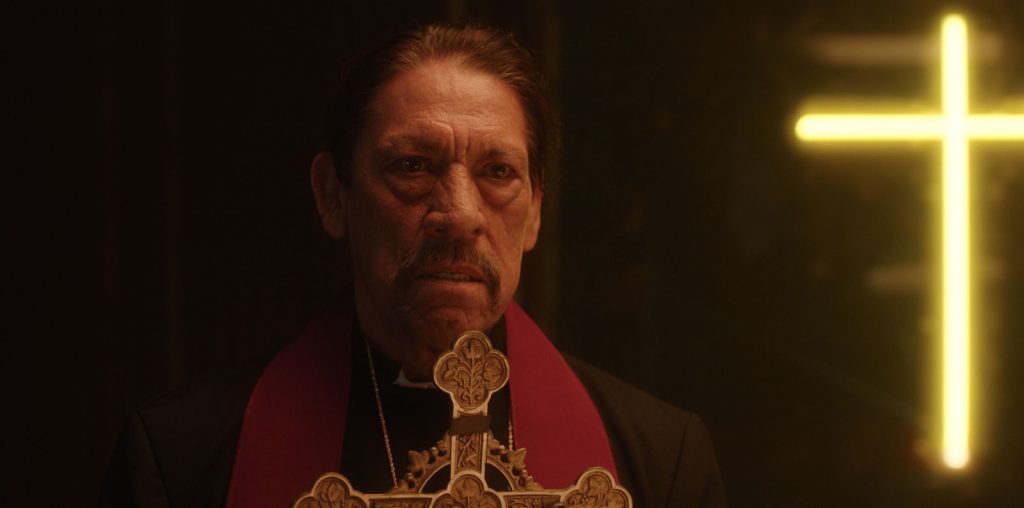
M. Night Shyamalan has made a lucrative career out of filming a series of meticulously crafted movies with surprise endings, from “The Sixth Sense” to the superior “Unbreakable” and the (to put it charitably) uneven “Signs.” His films are marked by palpable atmospherics and the above average performances he manages to coax from his actors (some of them, most notably Bruce Willis, not known for their extensive thespian chops).
But it’s always been the patented Shyamalan twists that get people talking. The ending of “The Sixth Sense” – never mind how most people claim to have seen it coming – was the most effective, probably because most people are liars. But that’s the trouble with tricking your audience; eventually they come to expect it and, even worse, spend more time hunting for clues to the gimmick than actually enjoying the film. The climax to “Unbreakable” didn’t resonate as heavily as its predecessor, while the “big surprise” in “Signs” was more a punchline to a joke than a compelling cinematic experience.
Which brings us to Shyamalan’s latest. “The Village” takes place in, you guessed it, a 19th century village situated in the middle of a forbidding forest. The people of the village have entered into a truce with the “monsters” that roam the woods, and take care not to stray outside the borders of the town.
Naturally, there are always those who can’t live by such a set of helpful draconian regulations. Enter Lucius Hunt (Joaquin Phoenix), who has it in his head to venture outside the confines of the forest and journey to the mysterious Towns for medicine and supplies for his people. The village elders, led by Edward Walker (William Hurt), won’t hear of it. And when Lucius impulsively enters the woods momentarily anyway, the creatures we’ve heard so much about finally make an unwelcome appearance.
Relax, I haven’t spoiled anything yet. Truth be told, “The Village” takes enough of its own sweet time establishing the weighty mood that the first glimpses we get of “Those we don’t speak of” (to use the villagers’ preposition-dangling nomenclature) come well into the picture, and are rather disappointing at that.
Lucius, roundly upbraided for his shenanigans, allows his escapist thoughts to lapse as he enters into a relationship with Walker’s blind daughter, Ivy. Ivy may not be able to see in the traditional sense, but she can apparently visualize a person’s “color.” Whether or not this is the popular McKinley-era _expression for “aura” is never explained. Even so, Lucius seems happy enough, which of course means something’s about to happen that will lead to drastic measures and the inevitable shocking conclusion.
Unfortunately for Shyamalan, the gas may be getting a little low in the *gasp* tank. I’m not one of those people who can easily predict the endings of movies, but I think I saw this one coming from the previews. Don’t get me wrong, it’s a mildly interesting concept, but nothing on the scale of dead people who don’t know they’re dead or superheroes. Shyamalan is obviously hoping to teach us something about the nature of fear; the devil you know vs. the devil you don’t, and to what lengths we’d go to protect those we love. However, the film is so plodding and the climax so…anti-climactic, that any lessons the audience has learned are forgotten as soon as their eyes start rolling in disbelief.
Luckily, Shyamalan has once again teased some fine performances from his cast. Phoenix is appropriately dour as young Lucius, and is complemented nicely by Sigourney Weaver, who plays his mother. Hurt and the rest of the Elders are also effectively grim, but the real revelation of “The Village” is Bryce Dallas Howard (daughter of Ron), who plays Ivy. Howard makes the same kind of out-of-nowhere impression as Haley Joel Osment did in “The Sixth Sense.” The difference being, Howard is a much better actor and essentially carries this film, keeping “The Village” from sinking in a morass of weak scares and self-important allegory.
M. Night Shyamalan is now 0 for his last 2, and it increasingly appears that the surprise ending shtick is one he can’t count on any longer. And while it’s a pretty film to look at (credit once again goes to cinematographer Roger Deakins), not even Howard’s debut as a leading lady can disguise the fact that “The Village” is a horror movie with few chills, and that Shyamalan may be a one-trick pony rapidly running out of ideas.
